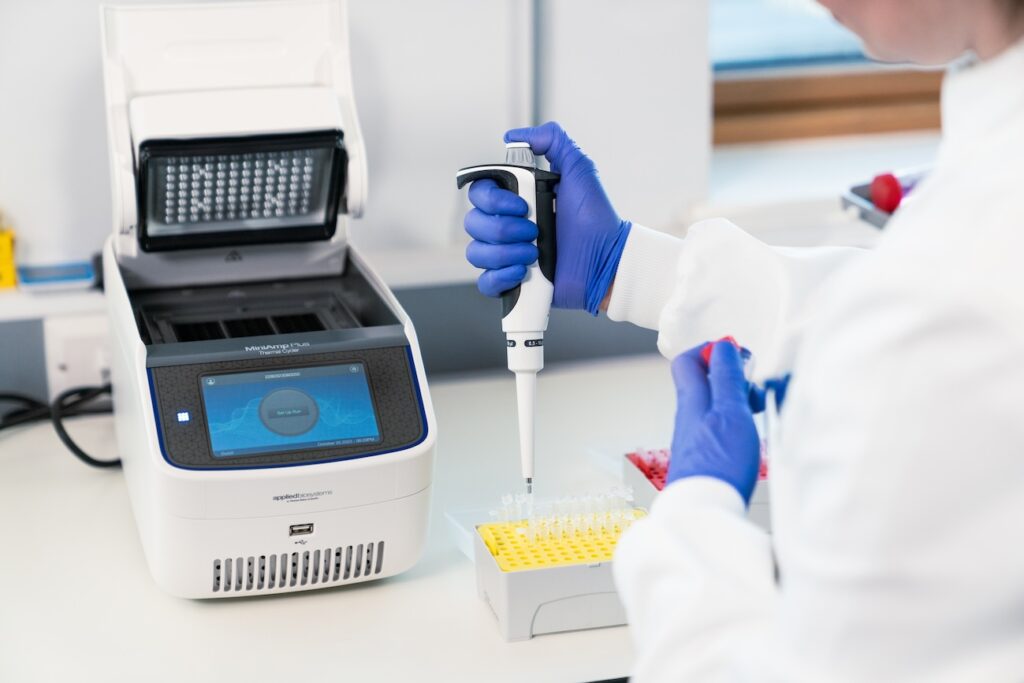
“The IoT investment in technology and equipment on top of the accreditation is what makes us stand out from the crowd,” says Medical Biology Lecturer Samira Khan.
Samira is currently in the first year of a 10-year funded research project licensed to be undertaken at BCUC looking into HPV and breast cancer alongside/funded by Cancer Research UK.
She is currently working with students on the Lancashire and Cumbria Institute of Technology Medical Biology course at Burnley College. She says: “It’s amazing. I think for the students to get to this experience this kit is phenomenal. It will help them get ready for industry at such an early stage.”
Students are often mixed at different levels to help share knowledge. “They’ve got a real community where it’s a hub to share knowledge amongst everybody, to improve everybody’s skills and knowledge.
Employers are at the centre the workings of IoT and providing students with both the practical and soft skills needed in today’s industry is paramount. “Once we’ve established where each student wants to go, we work on the academic skills, but then the softer skills, the supportive skills as well,” Samira says. “We always link back to what employers want.”
In-demand skills are also at the forefront of IoT courses. “We don’t teach from a textbook,” she says. “Our industry moves so fast that by the time we print a book, it’s already outdated. We work with current problems to find solutions.”
Burnley College is also planning to expand its current offer by building a Level 2 biohazard suite of laboratories. Students and staff were involved in designing the space and will inform what equipment will be included.
“Everything has been considered, from the amount of space from the sinks to the exits, to where the CO2 will go.” says Samira.